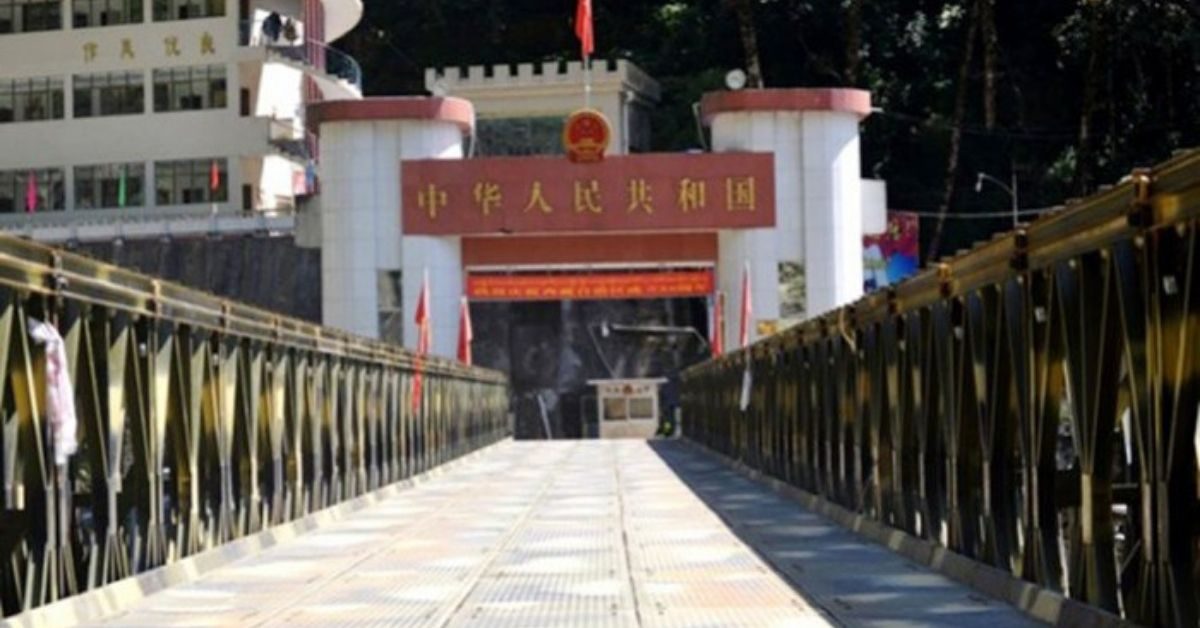An oxygen plant destined for Unified Covid-19 Hospital situated inside Bir Hospital arrived at the Tatopani border in late June, but it had to be rerouted back through Chinese territory to the Rasuwagadhi border as the road on the Nepal side was badly damaged by floods and landslides.
“It took more than a week to bring the oxygen plant as the shipment had to make a detour through another border point,” said Dr Nabin Pokharel, deputy director at Unified Covid-19 Hospital. “We had to make a special request to the Chinese side to clear the oxygen plant and not put it in a queue with other Nepal-bound cargo.”
After the oxygen plant, which has a capacity to produce 150 cylinders daily, was delivered, former Prime Minister KP Sharma Oli on Sunday inaugurated the surgical ward building of Unified Covid-19 Hospital. According to Dr Pokharel, the oxygen plant is currently being tested.
The oxygen making equipment was slated to arrive more than a month ago, but when the shipment reached the Tatopani border point, it could not be brought immediately to Kathmandu because of the damaged highway.
While cross-border movement through Tatopani has been halted from the middle of June, the Chinese side has been allowing seven containers to pass through Rasuwagadhi into Nepal daily, citing Covid-19 risks.
“As more cargo is diverted to the Rasuwagadhi border point from Tatopani via Chinese territory, the amount of Nepal-bound shipments awaiting clearance through Chinese customs has swelled,” said Ram Prasad Regmi, chief customs officer at the Rasuwa Customs Office. “I do not have the specific number of containers waiting in the queue.”
In normal times, China used to release around 250 containers daily. After the Covid-19 outbreak in Wuhan, China in late 2019, both border points between Nepal and China were closed for several months.
They have been reopened and closed several times in the last one and a half years, which has badly affected bilateral overland trade.
“We had to wait for more than a year to clear Nepal-bound goods stuck inside Chinese territory since early 2020,” said Bachchu Poudel, president of the Nepal Trans-Himalayan Border Commerce Association, a grouping of traders involved in Nepal-China trade.
“Due to uncertainty over when normal movement of goods will be allowed, most importers are now using sea routes to bring Chinese goods.”
When these border points were operating normally, importers would use land routes for faster delivery of goods as the freight charges were not much different for land and sea routes, according to traders.
It takes around 45 days for cargo dispatched from China by sea to arrive in Kathmandu while the overland route takes 14-21 days, they said.
“As traders suffered due to frequent closures of the border points, most are now transporting their cargo by sea,” said Poudel. “They will not be confident enough to resume shipments by land routes even after the situation normalises as they have had a difficult time for one and a half years.”
The road linking Kathmandu with the Tatopani border was damaged at two points—Kodari Bazaar and Liping—about a month ago. Officials say that it will take at least another two weeks to get the road ready for temporary movement of vehicles.
An official of the Division Road Office, Charikot, which oversees the roads in Dolakha and Sindhupalchok districts, said it would repair the road at Kodari Bazaar in two-three days for temporary use while it would take around 15 days to repair the damage at Liping.
Bijaya Kumar Mahato, divisional engineer at the Division Road Office, said it would take some time to repair the road as the portion washed away by the Bhotekoshi River has to be filled to bring it to the original level, which is about 60 metres above the water.
“As there is a village containing around 100 houses just above the road where the damage occurred, locals didn’t allow the hillside to be cut to widen the road fearing landslides,” said Mahato. “So we are trying to bring the washed out part of the road to the original level by filling the gap with boulders.”
According to Dipendra Shrestha, chairperson of ward number 2 of Bhotekoshi Rural Municipality, there is a real risk for the village if the hillside is cut, and it is natural for locals to be concerned.
As it is still uncertain when the repair work will be completed, Nepal-bound shipments are being diverted. During the peak of the second wave of Covid-19, this route was heavily used for bringing medical goods from China.
“Our usual work of clearing cargo through customs has stopped due to delays in repairing the road and diversion of containers,” said Narad Gautam, chief customs officer of Tatopani Customs.
Source : Kathmandu Post








